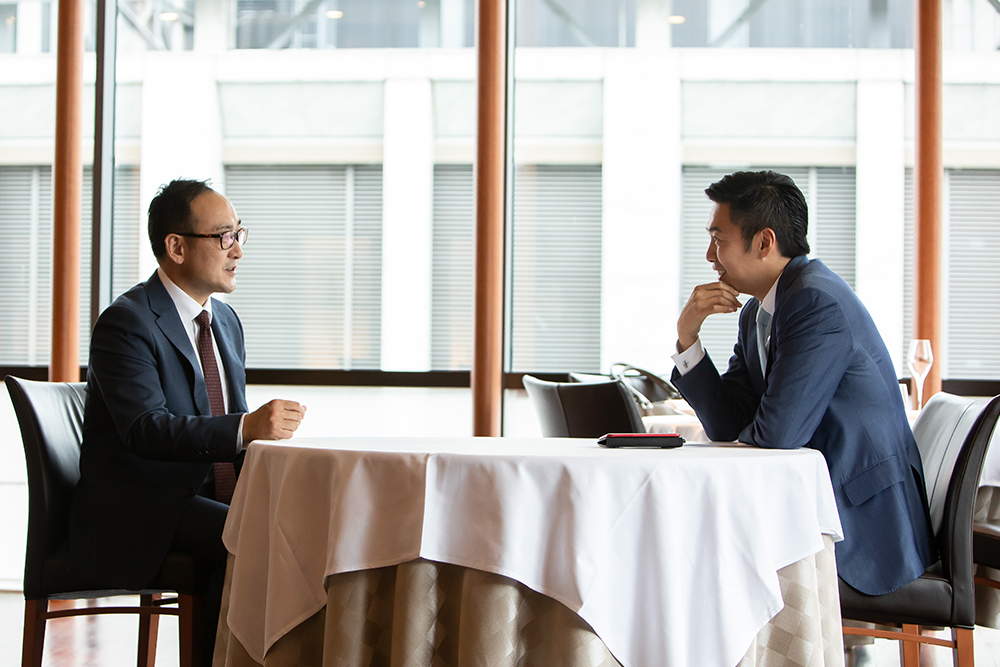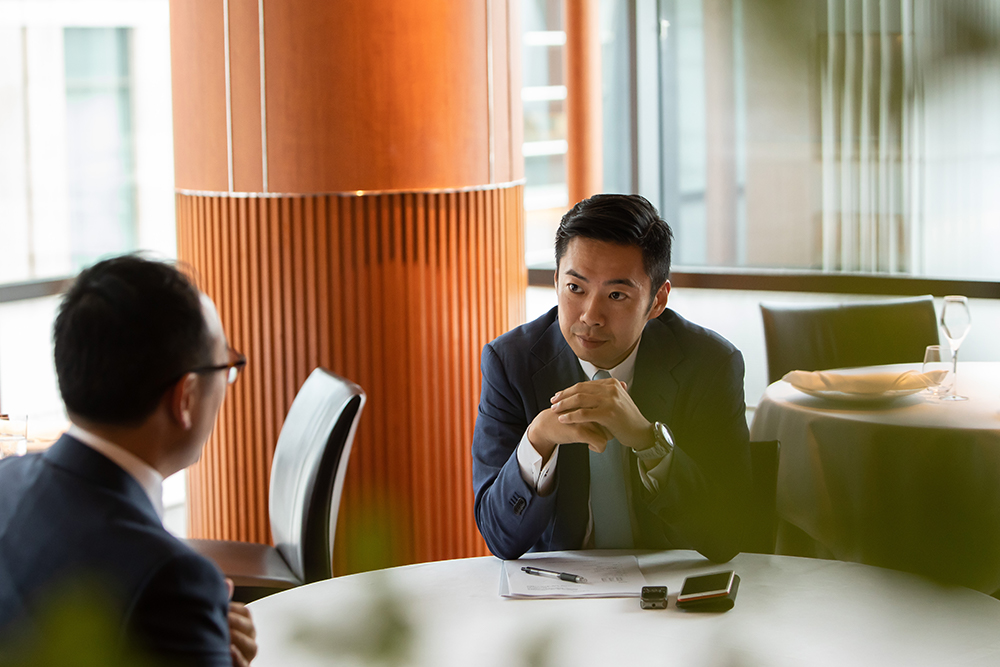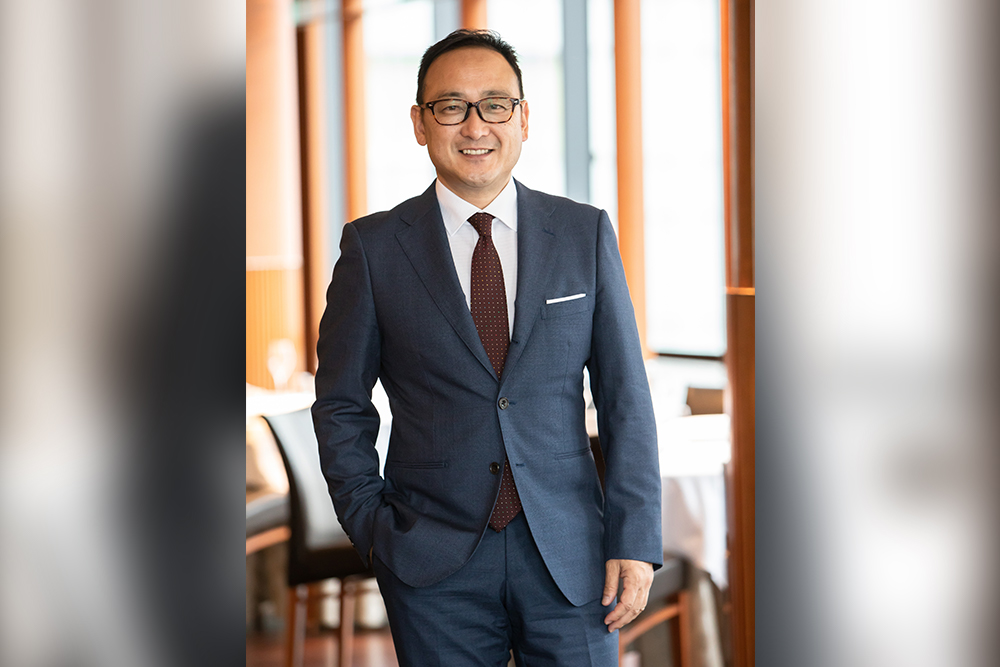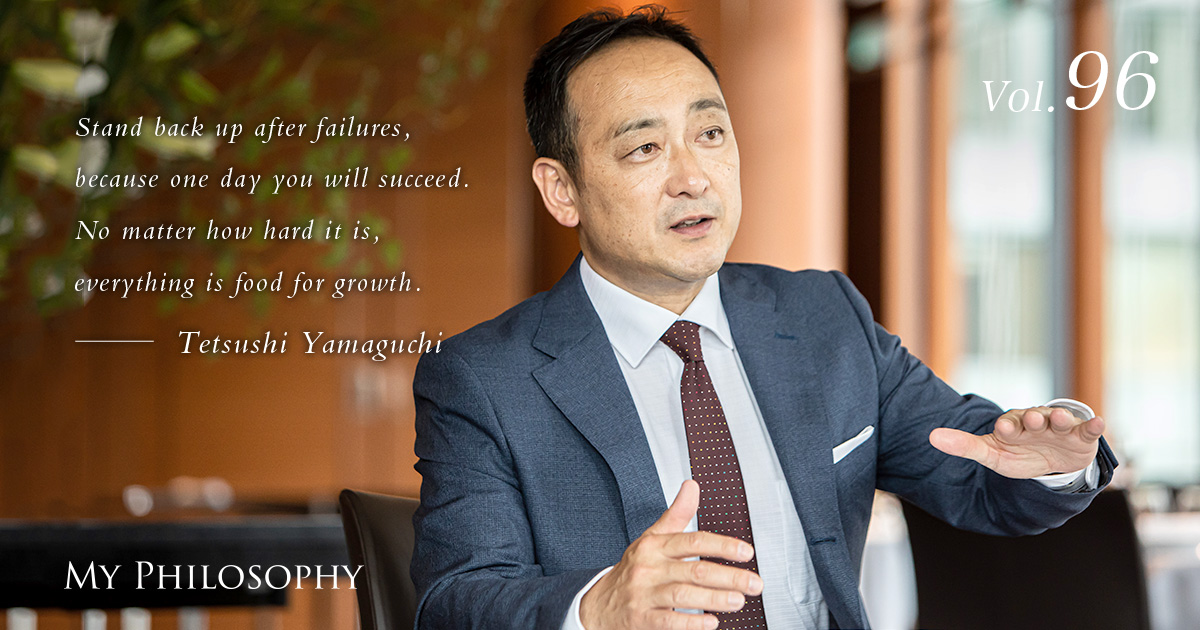
As the third-generation proprietor of a confectionery store, Mr. Tetsushi Yamaguchi navigated a challenging decade before facing the inevitability of closing the business. However, he found his true calling in operating a nursery, which significantly blossomed his life. He shares with us the lessons learned from his experiences and his dreams for the future.
Profile
Vol.96 Satoshi Yamaguchi
Chairperson of the Chitose Koyukai Social Welfare Corporation
Born in Okayama Prefecture in 1964, he graduated from Rikkyo University. As the eldest son of a long-established confectionery store, he entered the workforce at the department store Matsuya after university. At the age of 30, he took over the family business, but various issues led to deteriorating management. Originating from a fondness for children, he became involved in managing a corporate childcare facility established by the founder, which led him to close the confectionery business that had been running for over 50 years and shift towards the welfare industry. Currently, he operates licensed nurseries and related facilities in several regions, including his hometown of Okayama, as well as Tokyo, Kanagawa, Chiba, Saitama, Aichi, Osaka, and Fukuoka.
The Third Generation of the Confectionery Store
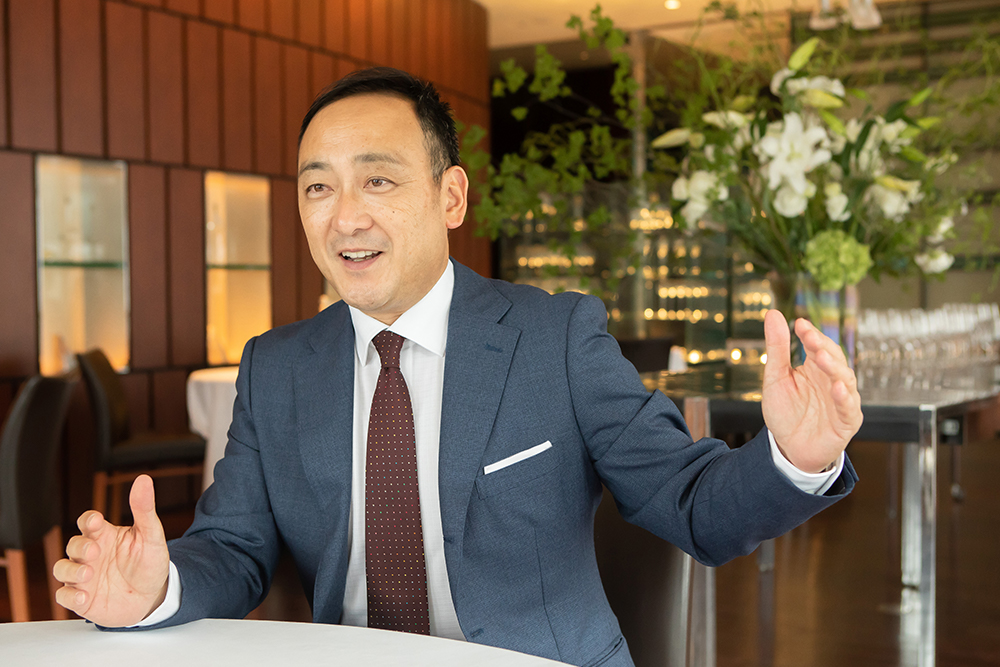
I currently operate 47 licensed nurseries, certified children’s centers, and facilities for children with disabilities, centered in Okayama but also extending to Tokyo, Fukuoka, and other areas (as of September 2019). However, reaching this point was a journey fraught with hardships. My family ran a confectionery store, which my uncle started after the war. Riding the wave of the high economic growth period, the business diversified successfully into building maintenance, amusement arcades, the food and beverage industry, and tourism, growing into a company with 700 employees. My father, the fifth of six siblings and a childless uncle’s adopted son, took over the business. I was born as the long-awaited eldest son after two sisters, under such a father. Walking through the downtown streets with friends, I would boast, “That store belongs to us. This one is mine too,” thinking the world revolved around me, an insufferable child in my own universe.
The Beginning of Trials
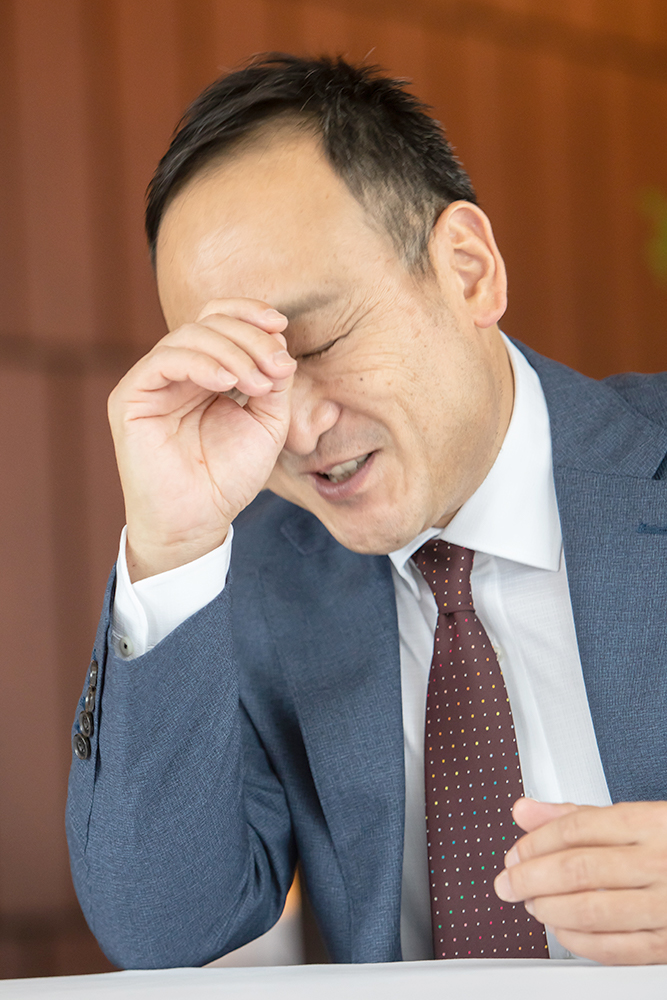
Employees and other relatives who admired my charismatic uncle didn’t follow my father, a novice in management, after my uncle’s sudden death. Around the same time, the bubble economy collapsed, and the business gradually contracted to the point where my mother would say, “By the time you take over, there might not be a company left.” Despite the hardships, my father downsized the business enough to leave the confectionery shop for me to inherit. At that time, I was working at the Matsuya department store in Tokyo, planning to return home around the age of 40 to expand the confectionery shop as its third generation owner. However, I had to rush back to Okayama at the age of 29 due to my father’s severe illness.
Upon my return, I found that the confectionery sales had decreased from over 1 billion to 500 million yen, with nearly 600 million yen in debt—a real crisis. We were barely balancing the books through subcontracting for other Japanese confectionery stores and renting out buildings. Desperate, I rejected my father’s hands-on approach and pushed for rational management based on financial figures. Without understanding the hardships and feelings of the craftsmen, I cut costs to the extreme, even laying off employees, which only lowered morale and profits further. Amid these struggles, I started producing Western sweets using Hiruzen Jersey milk, a popular brand of milk from Okayama, which became popular and expanded to four stores. However, the high production losses meant it could not cover the losses from the bean confectionery and Japanese confectionery divisions.
A Management Lacking Heart
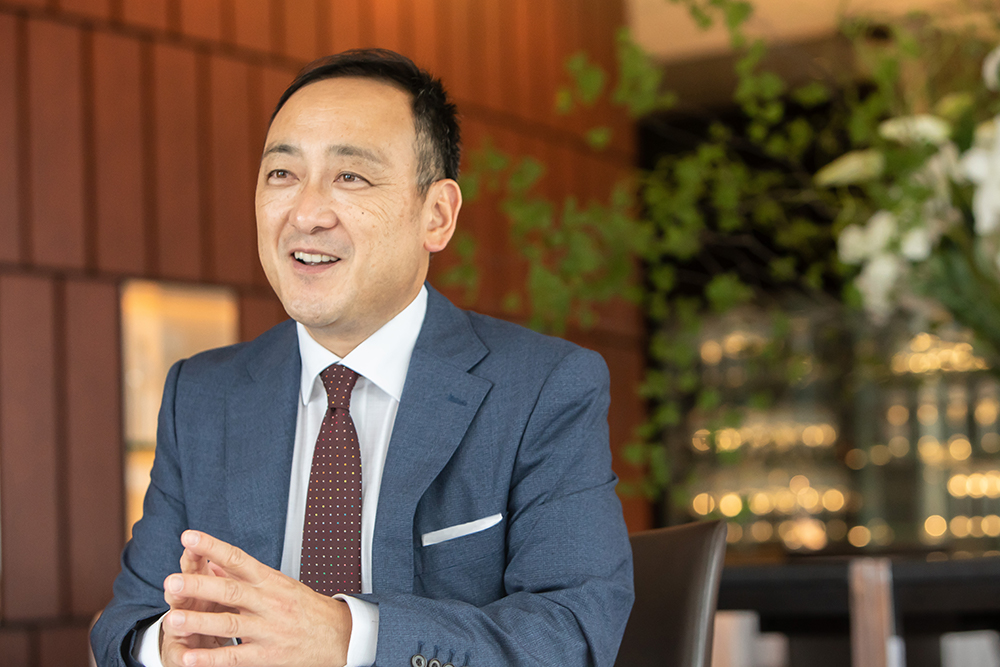
After taking over the company, a series of personal disasters befell me. A year into my tenure, my father passed away, triggering the imposition of inheritance taxes amounting to several hundred million yen. I thought bankruptcy was the only option until the head clerk suggested offsetting the debt with loans generated from previously restructuring a subsidiary. With the help of an accountant, we submitted a plea to the tax office, which, thankfully, was accepted. What followed were the total loss of our family home to a fire, my mother’s death, and a series of calamities that felt like enduring a storm for nearly a decade.
The company was increasingly cornered, and we sold half of the land of our spacious factory to a home builder to pay off some of our debt. We built a new factory on the remaining half, planning to focus on the more profitable bean and Western sweets, but things did not go as planned. Our financial situation worsened, leading us on the path to closure. Using connections, we rented out the factory built for Western sweets, managed to recover 50 million yen from 250 million yen in debt, and executed a self-managed M&A, transferring our employees and leased machinery to a rival company in Hiroshima.
Although we managed to sort out the company, the regret of not being closer to my employees and conducting a heartless management style still lingers, culminating in the closure of a business that had lasted over 50 years. I apologized personally to each craftsman who had dedicated themselves to confectionery making with love, and to the employees who couldn’t secure their next jobs, bowing deeply to them as they left. However, I am deeply grateful to the head clerk, a holdover from my father’s era, whose efforts allowed us to avoid bankruptcy and preserve the company in a different form.
Corporate Childcare Facilities
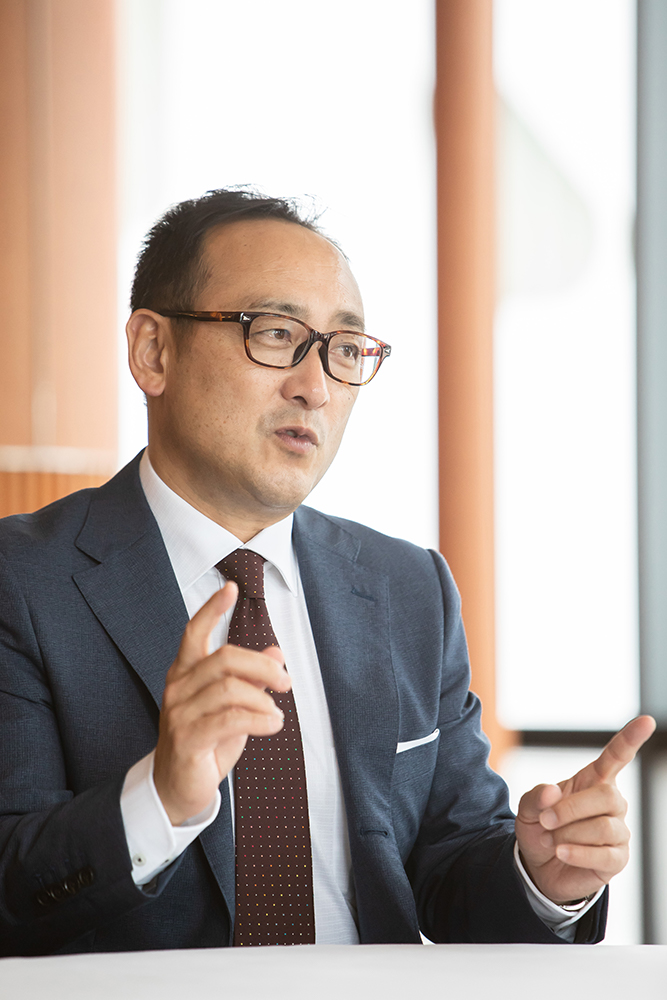
Every day felt like watching a paper airplane made from my carefully calculated, profit-slashed quotations being tossed aside at client supermarkets. Taking over as the director of the corporate childcare facility (licensed nursery) established by my uncle, I found solace in the children’s smiles at various events such as entrance ceremonies and sports days. Realizing my profound love for children, I decided to get involved in its operation with the help of my wife, who is a qualified childcare worker. I wanted to shift from the top-down teaching approach that was being used at the time to one that fosters autonomy and respects the children’s thoughts.
Caught between the ideal of creating the perfect nursery and working under the current director, I caused my wife a lot of hardship for a long time. Furthermore, as the director retired and most of the childcare workers and staff left, a few volunteers who resonated with our vision decided to stay despite the challenges. I am endlessly grateful to these dedicated individuals and my wife for their support during those difficult times.
A Second Home for the Children
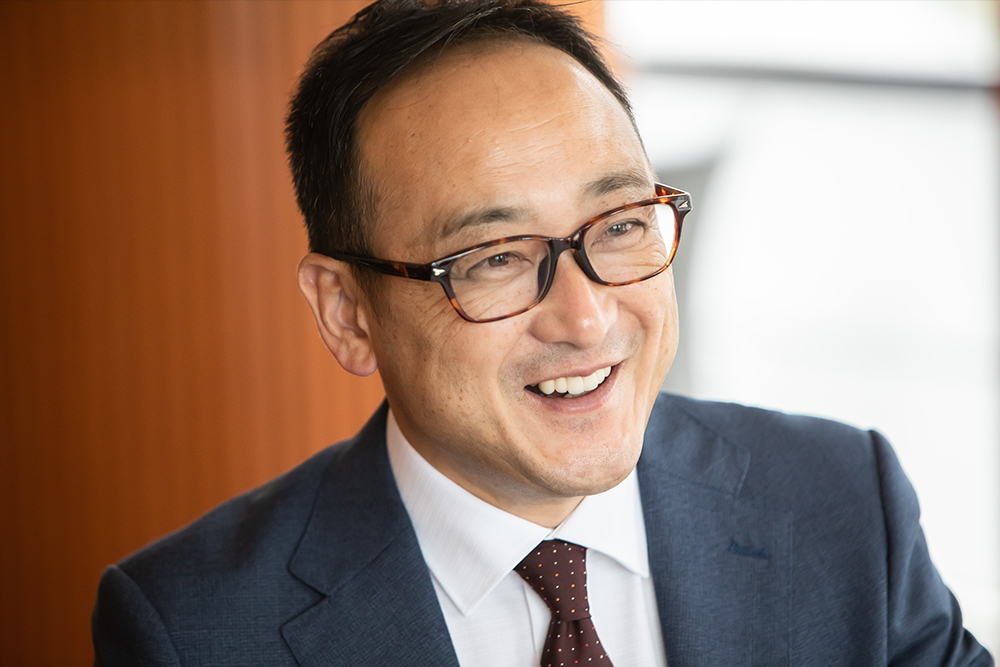
In 1997, we transitioned from a foundation to a social welfare corporation, enabling us to adopt a wide range of child-rearing support services such as temporary childcare, thanks to regulatory reforms. By embracing all these services, we became a well-regarded nursery in the local community. This prompted me to seriously commit to nursery management. I planned to build one nursery every four years within Okayama Prefecture, and by the time the third one was established, I decided to create a philosophy for our nurseries. Initially hesitant, the teachers came to realize the importance of having a unified direction to avoid fragmentation. They understood the need for a guiding principle during uncertain times, and after I shared my thoughts on childcare, they began to actively contribute ideas during our monthly meetings.
About a year into these discussions, the word “Home” emerged naturally, and it moved us all to tears. I was delighted. This philosophy, born from the teachers themselves, encapsulated their feelings for their colleagues and the children. This philosophy that we built from scratch is something we all cherish and intend to uphold for the foreseeable future.
Elevating Self and Peers
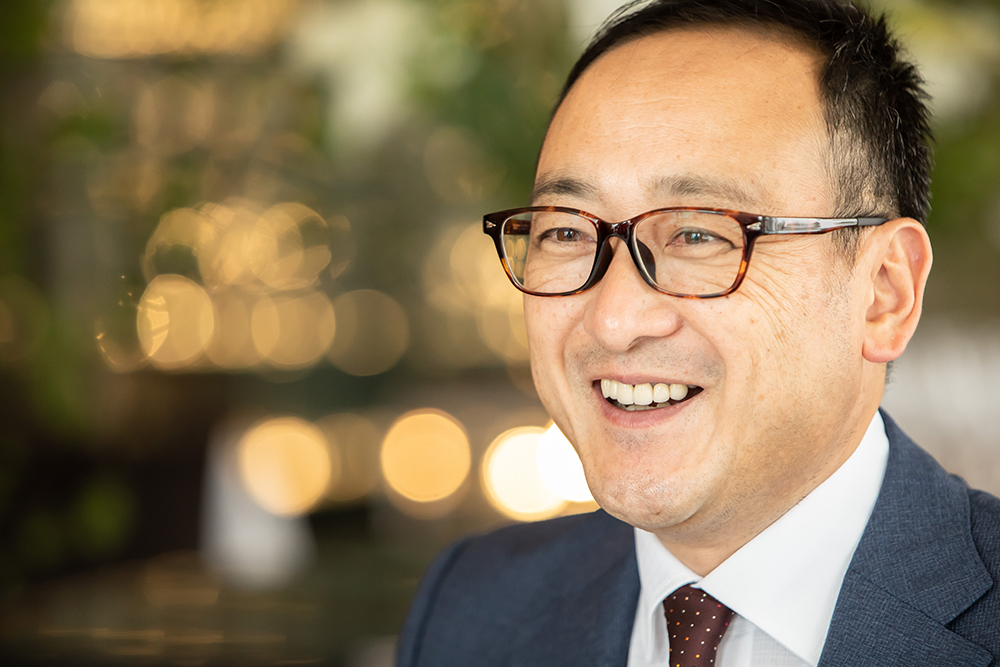
Going forward, I aim to enhance the quality of each nursery and strive to make our nurseries the best in Japan in both quantity and quality. Creating a ‘Home’ that is safe and comfortable for the children, of course, but also ensuring our staff to have a pleasant workplace is my goal. I’m also envisioning facilities that include pediatric clinics and pharmacies. Perhaps even supermarkets or delis could be part of this setup. If childcare, medical services, and shopping could all be done in one place, families would likely enjoy more quality time and conversations at home. I’d love for companies, each specializing in their fields, to come together and build this as a team. Having experienced what felt like rock bottom in my 30s, I believe in standing back up after failures and aiming for eventual success.
My parents passed away early without witnessing the success of their business. Perhaps because of this, relatives and others don’t speak very well of them. However, they loved me deeply and raised me with care, and their early departure in a way gifted me with valuable trials. I wish to repay them by living in a manner that, when my time comes, will have me recognized as having done well, which serves as my guiding principle. By always being grateful to those around me and my ancestors, and by enhancing my own humanity, I believe it will also elevate my parents’ standing. Elevating myself along with my peers, and through the practice of ethical management, my goal is for everyone involved to grow happier with each passing year.
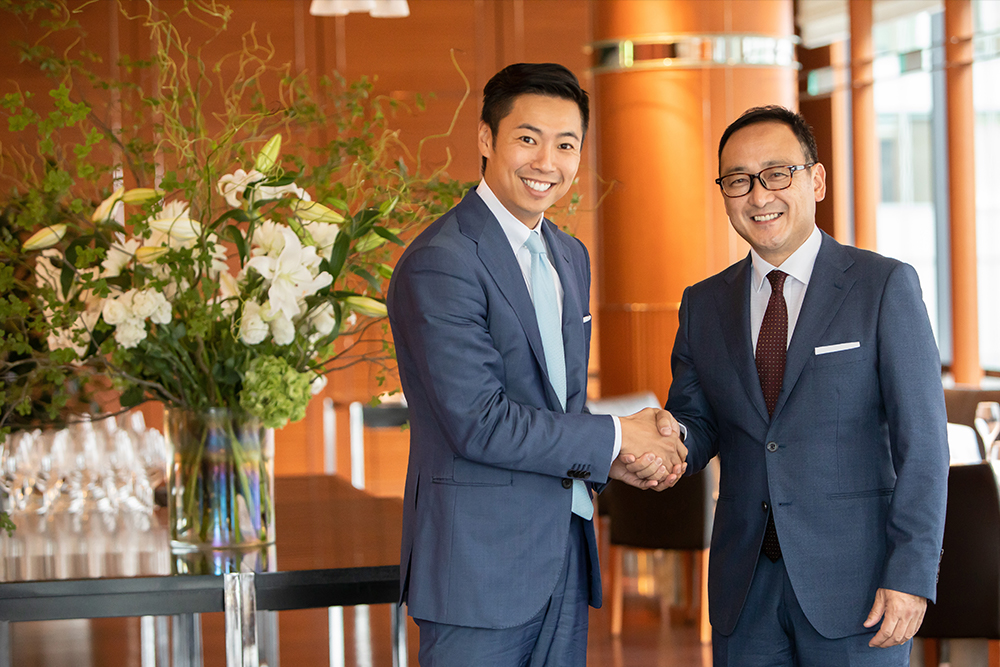
In recent years, our corporation has grown rapidly, and I’ve felt a strong need to communicate to our staff, their families, and those considering joining or enrolling their children about how I manage the organization, my background, and personal philosophy. It was during this time that I met Mr. Daisuke Sugiyama through a friend’s introduction. His overwhelming energy and the intellectual curiosity that made me want to share everything attracted me, leading to the creation of a document that encapsulates my thoughts.
Having Mr. Sugiyama ask various questions allowed me to share the deepest truths about myself and my life’s journey. Meeting him and his team was a stimulating experience that has invigorated the future direction of our corporation and awakened my philosophical seniority. I am truly grateful. I sincerely wish for the continued success and well-being of everyone. Thank you!!
Tetsushi Yamaguchi, Chairman of the Chitose Koyukai Social Welfare Corporation
Mr. Tetsushi Yamaguchi’s interview felt like watching a drama unfold, filled with various adversities and joyful moments, truly embodying the proverb “Life is full of ups and downs.” Every challenge seemed to empower Mr. Yamaguchi, a manager who always thinks of “ways to make it possible.” His view that “there are infinite solutions when something happens” reaffirmed the need to give our all in dire situations. Standing still and doing nothing solves nothing. Hearing Mr. Yamaguchi’s experiences taught me that action can pave the way forward.
Please continue to strive towards making your nurseries the best in Japan, in support of children’s growth. You have my full support!
July 2019, Argento ASAMI – at Hiramatsu Restaurant, Writer: Naomi Kusuda Photographer: Akane Inagaki




